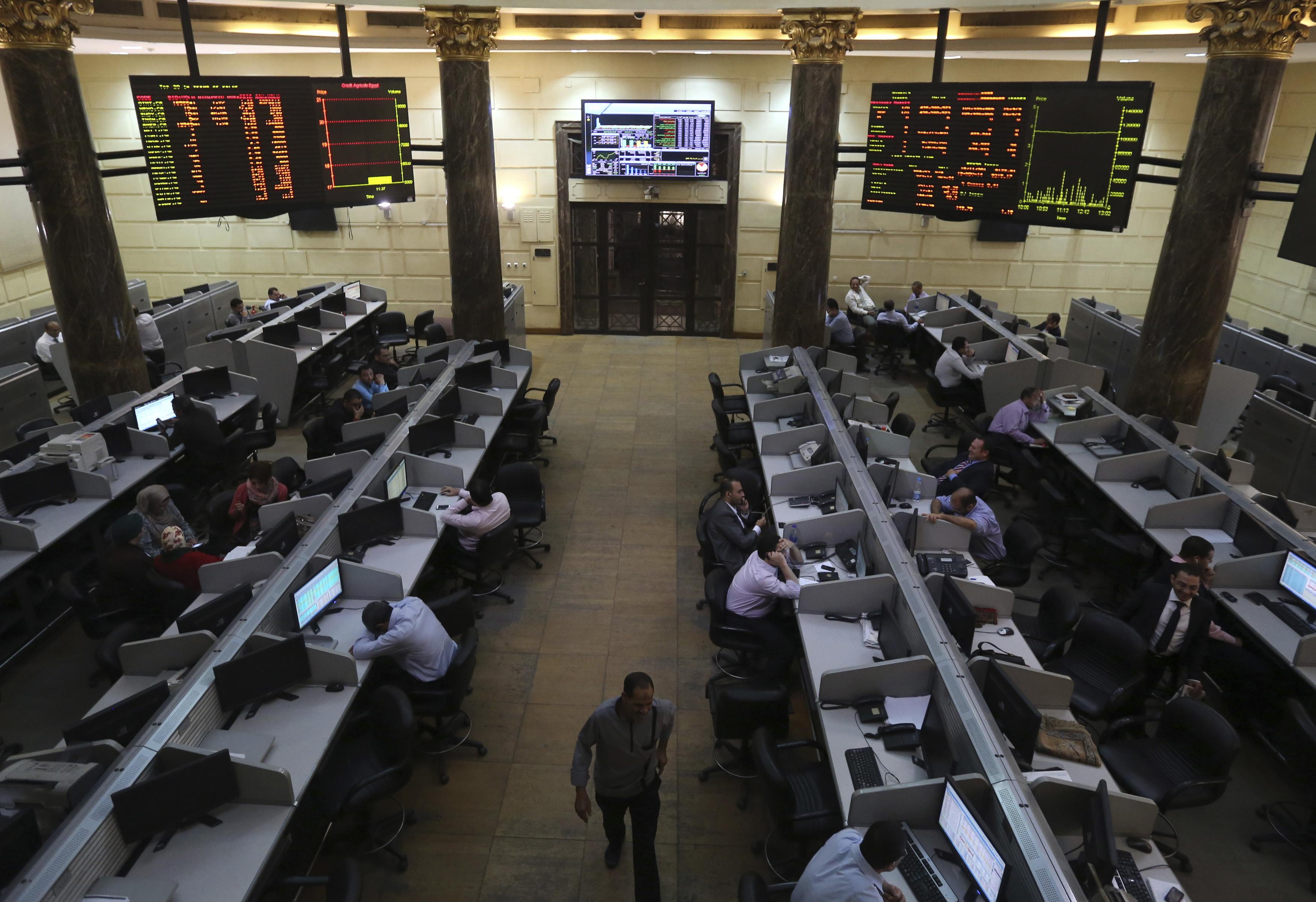Latest NEWS
- Aswat Masriya, the last word
- Roundup of Egypt's press headlines on March 15, 2017
- Roundup of Egypt's press headlines on March 14, 2017
- Former Egyptian President Hosni Mubarak to be released: lawyer
- Roundup of Egypt's press headlines on March 13, 2017
- Egypt's capital set to grow by half a million in 2017
- Egypt's wheat reserves to double with start of harvest -supply min
- Roundup of Egypt's press headlines on March 12, 2017
Egypt's stock market dips amid heavy selling

CAIRO, Nov. 23 (Aswat Masriya) - The Egyptian stock exchange dropped on Monday, reversing a climb in the first few minutes of trading, with retreats across its three main indices.
The benchmark index EGX 30 slipped by 2.36 percent, while the index for small and medium enterprises EGX 70 and the broader EGX 100 also fell, by 1.8 and 1.4 percent, respectively.
At the beggining of trading, EGX 30 inched up from 6,607 points, peaking to 6,642 points, in the first 15 minutes of the session. Afterwards it made a steady drop until the end of the session, settling at 6,451 points.
Today's retreat comes amid heavy selling by Egyptian and foreign financial institutions, while Arab traders made net purchases.
Ehab Saeed, the head of technical analysis at Osool ESB Securities Brokerage said the market went back on a downward trajectory after breaking the 6,500 point mark. The small rises in the three previous sessions made up for losses and halted the pressures caused by heavy selling, he said.
On Sunday, the first session of the week, the market inched up with the benchmark index EGX 30 rising by 0.59 percent.
The Egyptian stock market took a heavy dip at the start of last week on the heels of the Paris attacks on Nov. 13 and the Kremlin's announcement that the Russian plane that crashed in the Sinai desert last month was downed in a "terrorist act".
However, the market rebounded and rose on the last two days of trading last week, making Sunday's increase the third in a row.
Saeed believes that the monetary policies of the Central Bank of Egypt (CBE) and decision by many banks to raise interest rates on investment certificates are the main reasons behind the Egyptian stock market's retreat.
State and private banks have recently raised the saving scheme on certificates to 12.5 percent. This interest rate is around 2.5 or 3 percent higher than the available return on a saving scheme in Egyptian banking. The move has prompted many to believe that the CBE will follow suit and raise domestic interest rates next month, when the meeting of the monetary policy committee is scheduled.
On Nov. 11, in an unexpected move, the CBE appreciated the Egyptian pound against the dollar, raising it by 20 piasters and bringing it back to its price in early October, 7.73 pounds to the dollar.
Saeed said the interest rate increase coupled with the CBE's decision to revalue the Egyptian pound were "surprise moves" to "protect its purchasing power and to stem inflation."
"But in return it [CBE] has given the impression that the country is on track to raise domestic interest rates on lending, in a deflationary step that ignores improving the investment climate," he said.
Foreigners are expecting negative implications on the economy and on investment because of the monetary policies that will negatively affect profitability, he said, adding that this is why they are making "preemptive sales to protect their investments."










